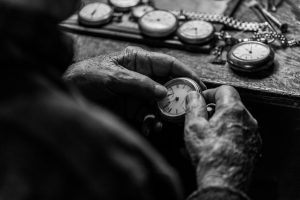As we age, sleep can become more difficult to achieve, leaving many seniors struggling to get a good night’s sleep. Sleep problems in seniors are quite common, but with the right strategies, better rest is possible. Healthy sleep habits are essential for older adults to maintain both physical and mental health. Whether it’s due to insomnia in older adults or other sleep challenges, learning how to improve sleep quality can make a big difference.
How to fall asleep faster for seniors
For many seniors, falling asleep quickly can be challenging. As we age, the body’s internal clock, or circadian rhythm, changes. This often leads to waking up earlier and feeling tired during the day. To help fall asleep faster, try these tips:
- Create a bedtime routine: Going to bed and waking up at the same time every day helps regulate your body’s sleep patterns. A relaxing routine like reading or taking a warm bath before bed can signal to your brain that it’s time to rest.
- Limit naps: While short naps can be refreshing, long or frequent naps during the day can make it harder to sleep at night. If you feel you need a nap, try to limit it to 20-30 minutes in the early afternoon.
- Avoid screens before bed: The blue light emitted by phones, tablets, and computers can interfere with melatonin production, making it harder to fall asleep. Try to stop using these devices at least one hour before bed.
Natural sleep remedies for older adults
If you want to avoid medication, there are several natural sleep remedies for older adults that can promote a restful night’s sleep. These remedies are safe, gentle, and can be very effective.
- Chamomile tea: Drinking chamomile tea before bed can have a calming effect, helping you feel more relaxed and ready for sleep.
- Lavender essential oil: Lavender has been used for centuries to promote relaxation. Placing a few drops of lavender oil on your pillow or in a diffuser can help create a peaceful sleep environment.
- Melatonin supplements: Melatonin is a hormone that your body produces naturally to help regulate sleep. Some seniors find that a melatonin supplement can help improve their sleep cycles, especially if they have difficulty falling asleep.
- Exercise: Gentle exercises such as walking or stretching during the day can help improve sleep quality at night. Just be sure not to exercise too close to bedtime, as it may keep you awake.
- Meditation and relaxation techniques: Deep breathing exercises, meditation, and progressive muscle relaxation can reduce stress and anxiety, making it easier to fall asleep and stay asleep.
Sleep hygiene tips for seniors
Sleep hygiene refers to the habits and practices that promote good sleep. Sleep hygiene tips for seniors are essential to improving the quality of rest each night. Here are some effective sleep hygiene practices:
- Keep the bedroom cool and dark: A cool, dark room creates the perfect environment for sleep. Try to block out any outside noise and light using earplugs or blackout curtains.
- Use a comfortable mattress and pillow: Having a supportive mattress and pillow is key to a restful sleep. Make sure your bed is comfortable, and replace any old, worn-out bedding.
- Limit caffeine and alcohol: Both caffeine and alcohol can disrupt sleep. Try to avoid them in the hours leading up to bedtime.
- Set a sleep schedule: Going to bed and waking up at the same time every day, even on weekends, helps regulate your body’s natural sleep rhythm.
- Limit fluid intake before bed: Drinking too much liquid before bed can cause frequent trips to the bathroom, interrupting your sleep.
Sleep problems in seniors
It’s not uncommon for older adults to experience sleep problems. These can include insomnia, difficulty staying asleep, or waking up too early. Sleep disturbances can be caused by a variety of factors:
- Medical conditions: Conditions such as arthritis, chronic pain, and heart disease can make it difficult to sleep comfortably. Medications taken for these conditions may also interfere with sleep.
- Mental health: Anxiety and depression, which are common in older adults, can make falling asleep more difficult. Cognitive-behavioral therapy or counseling may help manage these issues and improve sleep.
- Sleep apnea: Sleep apnea, a condition where breathing stops and starts during sleep, is more common in seniors. If you suspect sleep apnea, it’s important to speak to a doctor, as untreated sleep apnea can lead to other health problems.
- Restless leg syndrome: Restless leg syndrome causes uncomfortable sensations in the legs, often accompanied by an urge to move them. This can make it hard to fall asleep and stay asleep.
Popular prescription medications for seniors with sleep issues
For seniors who still have trouble sleeping despite natural remedies and sleep hygiene practices, prescription medications might be necessary. Here are five popular prescription medications that address insomnia and other sleep problems in older adults:
- Ambien
Ambien is commonly prescribed to treat insomnia by helping you fall asleep faster and stay asleep longer. It’s typically used for short-term relief of sleep problems. - Lunesta
Lunesta is another medication that helps treat insomnia in older adults. It works by calming the brain, allowing for a restful night’s sleep. - Trazodone
Trazodone, originally an antidepressant, is often used to help seniors with insomnia because it promotes relaxation and sleep without the risk of dependence. - Rozerem
Rozerem works by mimicking melatonin, making it easier to fall asleep. It’s commonly prescribed for those who have trouble falling asleep but don’t want a sedative. - Silenor
Silenor is prescribed to help treat insomnia by maintaining sleep, especially for seniors who have difficulty staying asleep throughout the night.
If you are considering taking a sleep aid, it’s crucial to consult your healthcare provider. They can help you find the most appropriate treatment for your specific needs and ensure it won’t interfere with any other medications you may be taking.
Getting a good night’s sleep after 60 is possible with the right approach. Sleep challenges may increase as we age, but through a combination of healthy habits, natural remedies, and, if necessary, medications, you can improve the quality of your rest. Make small changes to your routine, listen to your body, and don’t hesitate to seek professional advice if sleep problems persist. Sleep is essential for your health and well-being, and taking steps to improve it will enhance your overall quality of life.
For further information and guidance, explore resources from Sleep Foundation and National Institute on Aging.
FAQs
- What are the best ways to fall asleep faster for seniors?
Establishing a regular sleep routine, avoiding naps, and limiting screen time can help seniors fall asleep faster. - What are natural sleep remedies for older adults?
Chamomile tea, lavender oil, melatonin supplements, and meditation are natural sleep remedies that help promote restful sleep for seniors. - What are common sleep problems in seniors?
Insomnia, restless leg syndrome, sleep apnea, and waking up frequently during the night are common sleep problems faced by seniors. - Why is sleep hygiene important for seniors?
Practicing good sleep hygiene improves sleep quality, helping seniors stay healthy, active, and mentally sharp. - Are there medications to treat insomnia in older adults?
Yes, medications like Ambien, Lunesta, and Trazodone are commonly prescribed to treat insomnia in older adults.



